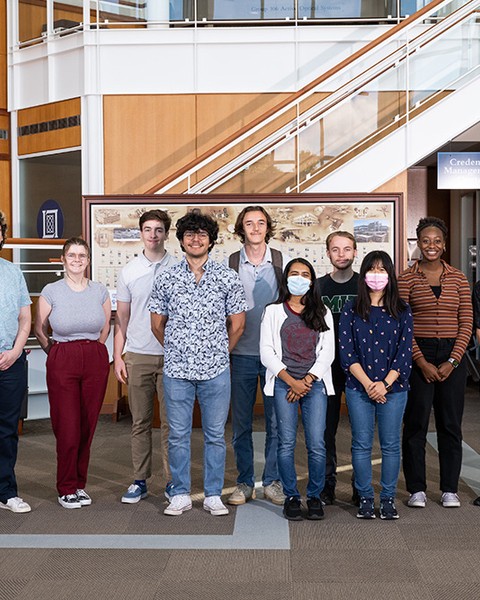Jane Halpern | Department of Electrical Engineering and Computer Science
October 6, 2022
One of the most critical components of our technological future is easy to overlook. Microelectronics, the devices and circuits at the core of computer and communication chips, are aptly named: built on the micrometer (and nanometer!) scale, they cannot be seen with the naked eye, but they power almost everything around us from smart watches, cell phones, or computers to electric vehicles and the sophisticated tools used in DNA sequencing and drug discovery.
Although we often take them for granted, the pandemic and supply-chain issues it has fostered have highlighted how critical these tiny electronic building blocks are. However, although the development of microelectronics began in the United States, production of microelectronics chips in the U.S. over the last 30 years has lagged behind that of other countries, creating a critical shortage of national capability in research, development, and manufacturing.
The Massachusetts Microelectronics Internship Program (MMIP) is trying to change that. Designed by a coalition of universities, private companies, and state governmental organizations, the new initiative was launched this past summer to connect undergraduates interested in learning more about microelectronics with industry.
Complete article from MIT News.
Explore
MIT Engineers Advance Toward a Fault-tolerant Quantum Computer
Adam Zewe | MIT News
Researchers achieved a type of coupling between artificial atoms and photons that could enable readout and processing of quantum information in a few nanoseconds.
The Road to Gate-All-Around CMOS
Monday, April 14, 2025 | 10:00 AM to 11:00 AM
In-Person
Haus Room (36-428)
50 Vassar Street Cambridge, MA
2025 MIT AI Hardware Program Annual Symposium
Monday, March 31, 2025 | 10:00 AM - 3:30 PM ET
Multiple Speakers




